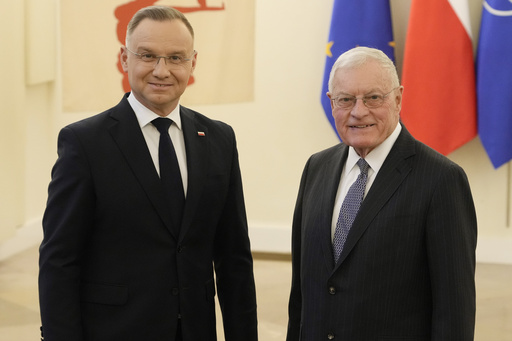
WARSAW, Poland — President Andrzej Duda of Poland announced on Tuesday that he has received confirmations from the United States regarding its commitment to maintaining its military presence in Poland and along NATO’s eastern border.
Although the Trump administration has not indicated any intentions to withdraw troops from the region, it has urged Europe to increase its own defense efforts. This position has raised concerns among NATO partners about the future of U.S. support in the area.
Duda reassured reporters in Warsaw, expressing confidence that there is no reason to fear a reduction of U.S. forces in Poland. He emphasized that there would be no withdrawal from the shared responsibility of ensuring the security of Eastern Europe. “Our collaboration remains intact,” Duda stated.
He also voiced optimism regarding President Trump’s ongoing initiatives and expressed hope that these efforts may lead to a resolution to the conflict in Ukraine. Duda, who has fostered a positive relationship with Trump, made these comments following a meeting with General Keith Kellogg, the U.S. special envoy for Ukraine and Russia.
Duda’s assurances were shaped by his recent discussions not only with Kellogg but also with U.S. Secretary of Defense Pete Hegseth, whom he welcomed to Warsaw the previous week. He encouraged citizens to maintain a sense of calm amid the shifting defense priorities under the Trump administration.
The United States had initially stationed troops in Poland after Russia’s annexation of Crimea in 2014, but significantly enhanced its military presence following Russia’s large-scale invasion of Ukraine in 2022. This commitment underscores the ongoing strategic partnership between the U.S. and Poland in addressing regional security concerns.

